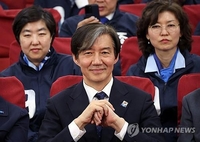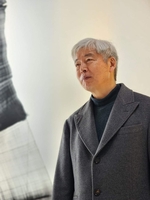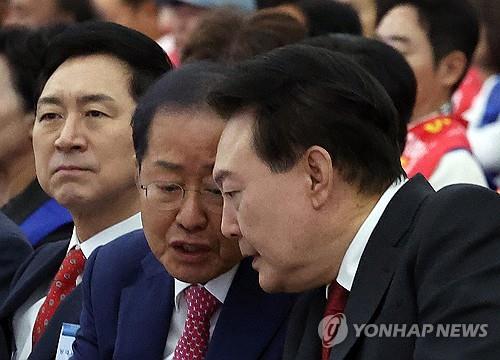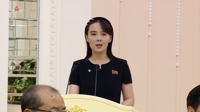(EDITORIAL from Korea Herald on June 22)
Dividing taxpayers
DP politicizes taxation policy with plan to tax by ratio, not by amount
The ruling Democratic Party of Korea on Friday finalized its plans to ease the property tax burden on homeowners.
During a plenary party meeting, it voted to change the object of comprehensive real estate holding taxation from houses worth 900 million won ($795,000) or more to houses in the top 2 percent in terms of state-assessed value.
It decided to extend the transfer tax deduction to homes worth up to 1.2 billion won from the current standard at 900 million won. The party also voted to grade transfer tax deduction rates for long-term homeownership, depending on the amount of transfer income.
The party attributed its defeat in the April 17 by-elections to popular sentiment worsening over skyrocketing housing prices and consequent surge in property taxes, and created a special committee on real estate issues. The panel discussed measures for about two months, and then put them to a party vote.
It is a good thing for the party to reach a consensus over the plans to lessen tax burden on people. Comprehensive real estate tax was introduced as a sort of wealth tax on a small number of rich people, but housing prices soaring due to wrong-headed measures taken by the current administration on more than 20 occasions have made about 1 in 4 Seoul apartments subject to the tax. In this light, it is the right move to reduce the number of taxable properties. Homes worth 900 million won or more are estimated to represent top 3.7 percent in terms of this year's assessed value.
Selecting taxable objects based on a ratio such as the top 2 percent is almost unprecedented globally. If the 2 percent standard is applied, taxable properties will vary each year together with change in housing prices. The taxable amount converted from the ratio will change inconsistently, shaking the stability of taxation.
Even if house values fell, for example below the current tax base, homes in the top 2 percent cannot avoid the tax. It is questionable if this is fair.
Homeowners near the 2 percent border will not know whether they will be taxed until their tax bills arrive. The predictability of tax payment will fall.
The party's plans disregard the ability-to-pay principle. Those without second homes have no other choice but to live in the only houses they possess, regardless of housing price hikes. For them, home price increases have nothing to do with income or the ability to pay taxes. It is unfair to frame such homeowners as "top 2 percent" and impose heavy tax on them only because their properties are expensive.
The malformed ratio-based taxation will only cause confusion and dissatisfaction, but the ruling party with an overwhelming majority in the National Assembly will likely enact it as is. But if it wants to avoid a backlash, it needs to consult the government and opposition parties to minimize the side effects.
The average transaction price for Seoul apartments surpassed 1.1 billion won. In this situation, it is rational to raise the transfer tax deduction base from 900 million won to 1.2 billion won.
But it is problematic to make tax deductions diminish as transfer income increases under the view that transfer income is unearned and that unearned income is a product of speculation.
This will make it difficult for ordinary retirees who have not had their second homes for a long time, which is a prerequisite for the deduction, to sell their houses and move out.
A more fundamental problem with the party's plans are that they were politically calculated rather than formulated with a pure intention to ease tax burden.
The committee was outspoken in emphasizing that its measures are a strategy to widen the party's support base. A lawmaker who opposed tax cuts for the owners of expensive homes reportedly asked the panel if the party could really win back votes if it reduces the number of those subject to comprehensive real estate tax.
The party will find it difficult to deflect criticism over taxation based on a ratio, not on an amount. This unprincipled standard appears to be a ploy to divide taxpayers into the minority and the majority in a bid to win over the majority ahead of the presidential election next March.
The party once raised hopes of a change of its course on real estate issues after the by-elections, but it continues to be stuck in the rut of real estate politics.
(END)
-
 Overdue debut of Korean abstract art pioneer Yoo Young-kuk at Venice Biennale
Overdue debut of Korean abstract art pioneer Yoo Young-kuk at Venice Biennale -
 Relax, immerse yourself in scents at Venice Biennale's Korean Pavilion
Relax, immerse yourself in scents at Venice Biennale's Korean Pavilion -
 S. Korea marks 30th anniv. of Korean Pavilion at Venice Biennale with contemporary art
S. Korea marks 30th anniv. of Korean Pavilion at Venice Biennale with contemporary art -
 Ex-Justice Minister Cho slams Yoon's statement on crushing election defeat
Ex-Justice Minister Cho slams Yoon's statement on crushing election defeat -
 Artist Lee Bae captures ethereal Korean aesthetics at Venice Biennale
Artist Lee Bae captures ethereal Korean aesthetics at Venice Biennale
-
 Overdue debut of Korean abstract art pioneer Yoo Young-kuk at Venice Biennale
Overdue debut of Korean abstract art pioneer Yoo Young-kuk at Venice Biennale -
 Relax, immerse yourself in scents at Venice Biennale's Korean Pavilion
Relax, immerse yourself in scents at Venice Biennale's Korean Pavilion -
 Artist Lee Bae captures ethereal Korean aesthetics at Venice Biennale
Artist Lee Bae captures ethereal Korean aesthetics at Venice Biennale -
 S. Korea marks 30th anniv. of Korean Pavilion at Venice Biennale with contemporary art
S. Korea marks 30th anniv. of Korean Pavilion at Venice Biennale with contemporary art -
 Yoon, Daegu mayor met to discuss post-election matters: sources
Yoon, Daegu mayor met to discuss post-election matters: sources
-
 Hybe says spinoff attempt by subsidiary label revealed clearly
Hybe says spinoff attempt by subsidiary label revealed clearly -
 N.K. leader's sister slams joint S. Korea-U.S. military drills
N.K. leader's sister slams joint S. Korea-U.S. military drills -
 (LEAD) N. Korea says Kim guided simulated nuclear counterattack drill
(LEAD) N. Korea says Kim guided simulated nuclear counterattack drill -
 Pentagon stresses close consultation with S. Korea after simulated N.K. 'nuclear counterattack' drill
Pentagon stresses close consultation with S. Korea after simulated N.K. 'nuclear counterattack' drill -
 (LEAD) N. Korea sends economic delegation to Iran amid suspected military cooperation
(LEAD) N. Korea sends economic delegation to Iran amid suspected military cooperation





















